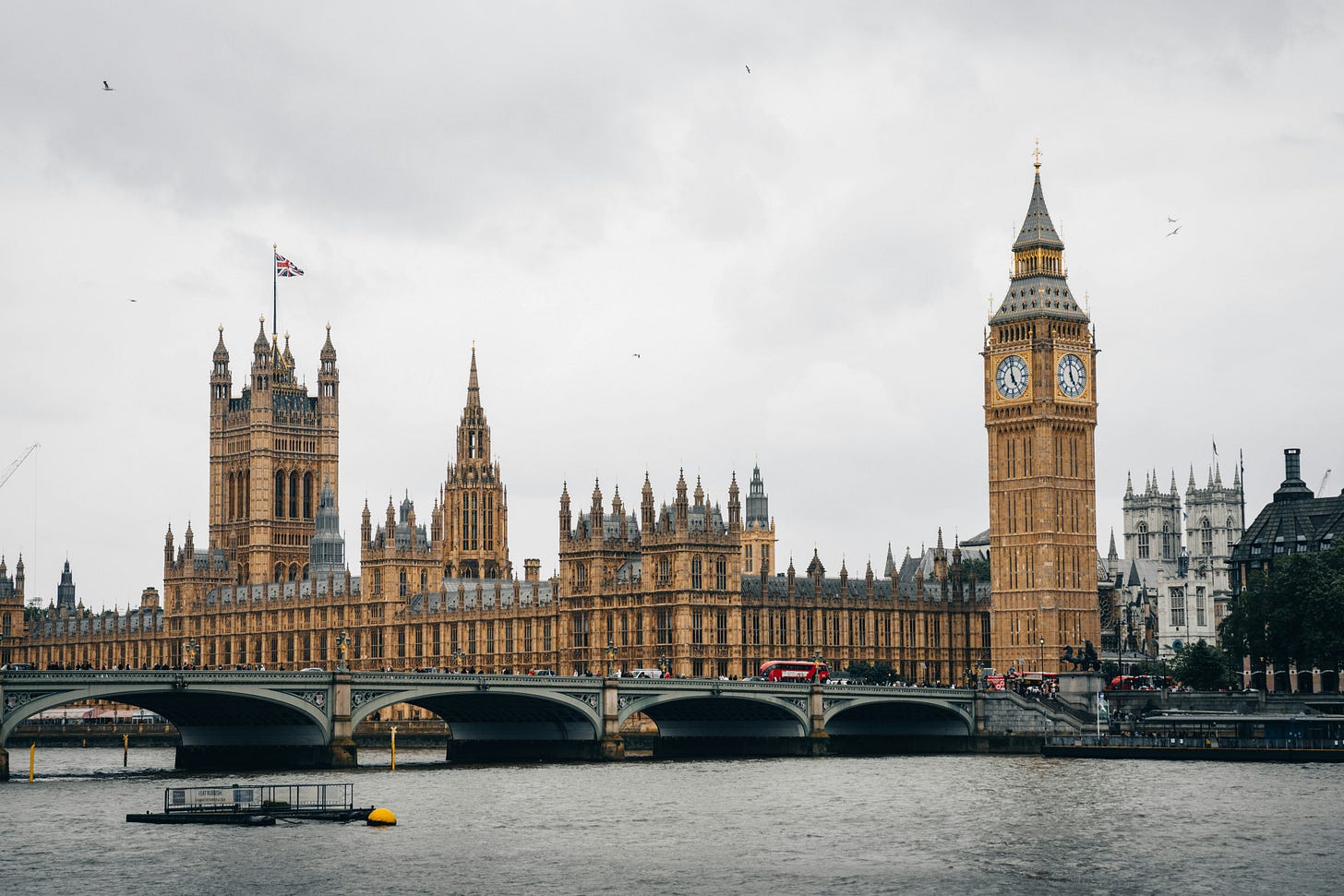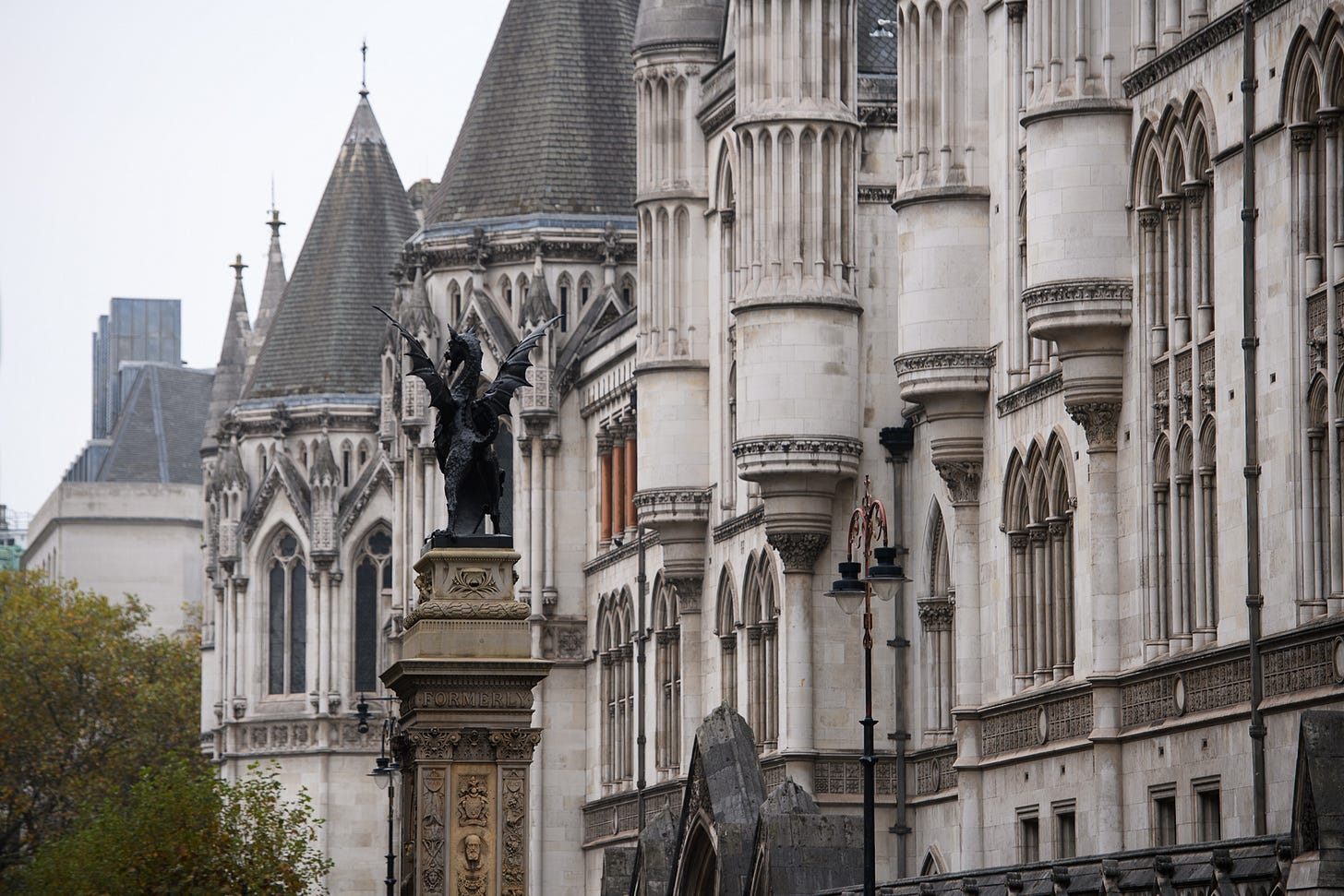Leveson Part 1: Abolishing Jury Trial in Complex Fraud
Written by Ed Vickers KC, Faras Baloch, Anita Clifford and Katie Bacon
On 9 July 2025 Part 1 of the Independent Review of the Criminal Courts chaired by Sir Brian Leveson ("the Leveson Review") was published. The report recognises that criminal justice is in crisis with over 77,000 outstanding cases in the Crown Court and with some trials being listed in 2029. The proposals include increasing out of court disposals for low-level offending, removing the right to elect Crown Court trial for less serious offences, removing the automatic right to appeal from the Magistrates to the Crown Court, advance sentence indications (applying Goodyear) at the pre-trial preparation hearing (PTPH), increasing the maximum reduction in sentence for a guilty plea to 40%, creating a new division of the Crown Court for all either way offences, allowing defendants in the Crown Court to choose to be tried by judge alone and removing altogether the right to trial by jury in all cases of serious and complex fraud.
Some of these proposals are a practical response to the crisis in which the criminal justice system is mired following decades of neglect and underfunding by successive governments. In this edition of Focus, however, we examine the last proposal - removal of the right to jury trial in serious and complex fraud cases.
The Proposals
Leveson recommends that cases of serious and complex fraud should be dealt with by a preparatory hearing at which the judge hears submissions on whether trial by judge alone is appropriate. The judge would consider the likely trial duration, the volume and complexity of material and whether there is a hidden dishonesty or complexity issue that is outside the understanding of the general public (with a new Criminal Practice Direction to be published). If the judge concluded that the relevant criteria were met, the case would be tried by a judge alone. The allocation decision would be subject to interlocutory appeal. Whilst the report considers trial by Fraud Panel (judge with two ‘expert’ lay members) as an alternative, it ultimately concludes that this is less viable due to the potential cost of having to maintain an expert panel.
Previous Attempts to Abolish Jury Trials in Complex Fraud
It is important to place the latest Leveson Review in its historical context, given that proposals for judge alone trials in serious fraud were first made forty years ago. They were rejected, but every few years resurface with similar arguments both for and against being ventilated.
In 1983 the Roskill Committee on Fraud Trials recommended that the prosecution or defence should be able to elect trial by a judge and two professional lay members familiar with business and financial matters. The rationale for reform was that juries could not understand complex cases. However, one of the members of the Committee (solicitor Walter Merricks) in a powerful dissenting note pointed out that little evidence had been provided of juries having difficulties in understanding the issues in such cases. The view of most of those consulted from the police, practitioners, and judges experienced in crime favoured the retention of juries in complex cases. He stated that the Committee had “only anecdotal and second-hand evidence on the central question at issue. Even that evidence, however, did not point unambiguously towards the conclusion that jurors cannot and do not understand fraud cases.”
In response to Roskill Lord Devlin argued that the right to trial by jury had become so much of an institution that it was more or less a convention of the constitution that citizens should not be liable to more than a limited term of imprisonment otherwise than by a jury verdict. The then Conservative Home Secretary (Douglas Hurd) asked in the parliamentary debate “in our system of open justice is it right that those who risk substantial terms of imprisonment should forfeit the right to be tried by a jury…, not because their crime was more serious but because it was more intricate than the next man's?”. Whilst the government implemented many of Lord Roskill’s proposed reforms, including the establishment of the Serious Fraud Office, jury trial in serious and complex fraud survived.
In 1991, the government announced the establishment of a Royal Commission on Criminal Justice to examine the criminal justice system from every stage. The Commission concluded that there was “no evidence” to support juryless trials and recommended that section 8 of the Contempt of Court Act 1981 be amended to allow further research on juries “so that informed debate can take place rather than argument based on surmise and anecdote”.
In 2001, Lord Justice Auld’s Review of the Criminal Courts concluded that amending s.8 would be too intrusive. Nevertheless, the Review recommended that trial judges be given the power to direct trial by a single judge and two lay panel members or, if the defendant elected, by judge alone in cases of serious and complex fraud. The basis for the proposal was the increasing sophistication and complexity of commercial and international fraud leading to difficulties for juries in understanding the facts and the burden of long trials on them personally.
Section 43 of the Criminal Justice Act 2003 gave effect to this recommendation. It provided for a judge to order the case to be conducted without a jury if satisfied that the length or complexity of the case (having regard to steps which might reasonably be taken to reduce it) was likely to make the trial so burdensome upon the jury that the interests of justice required serious consideration to be given to conducting the trial without a jury. At the second reading of the Bill in the House of Lords, the Lord Chancellor provided the following explanation, “that is not because we doubt the competence of the jury but because the trial places too great a burden on the jury and because indictments have to be severed to make jury trial manageable”.
However, the provision was not brought into force due to strong opposition across the political spectrum. It was argued in both Houses that there was no evidence that juries did not understand fraud trials, that juries commanded greater trust amongst the public (including amongst ethnic minorities), that there was no principled basis to distinguish complex fraud from other offences and little time or money would be saved.
The Fraud (Trials Without a Jury) Bill (2007) sought to implement s.43. It added a requirement that applications for non-jury trials be heard by a High Court judge and that the consent of the Lord Chief Justice was required. The concessions proved insufficient.
Although the Bill was passed in the Commons it was rejected by the Lords in March 2007. This was the third time the Lords had rejected the section and the then Attorney General, Lord Goldsmith QC, threatened to invoke the Parliament Act and go over the heads of the Lords. He eventually backed down.
The section was altogether repealed by s.113 of the Protection of Freedoms Act 2012 the coalition government having determined that “in fraud cases, even the longest ones, jury trial will work” and that the heavy burden imposed on those required to sit on juries did not justify the removal of this fundamental right. Jury trial in complex cases survived only to come under fire three years later.
In January 2015, Sir Brian Leveson published his Review of Efficiency in Criminal Proceedings. In the out of scope observations he pointed to the reduction in expense if complex trials were conducted by judges (with assessors) and that they would more readily understand the financial and commercial context than jurors. However, he hesitated to suggest that further consideration be given to a proposal that had so recently been scrutinised and rejected by Parliament and noted that the judges of Southwark Crown Court (who try the vast bulk of serious fraud cases) believed that more time and expense was taken up in the interlocutory stages (presumably relating to arguments concerning disclosure) rather than the trials themselves.
In 2016 a report on Complex and Lengthy Trials by Sir David Calvert-Smith was published by JUSTICE. The report concluded that there was no compelling evidence to support the argument that juries were unable to understand the evidence in complex trials. They considered that in the vast majority of cases the technical details had been narrowed so the trial issue was one of dishonesty, knowledge or participation. It was noted that evidence in the public domain on the burden of the task was confined to the Jubilee Line case (which started in 2003 and lasted 21 months before the jury was discharged) and it suggested that the jury was prepared and able to shoulder the burden and retained the evidence to a remarkable degree. Finally, the report concluded “The length and complexity of the trial can never be the deciding factor in a judge-only election procedure. In fact, the types of case in which lengthy and complex proceedings occur may be the least suited to judge alone trial, for reasons of legitimacy, transparency and public confidence, avoidance of bias and ensuring that the proceedings do not become ever more lengthy and complex.”
It seems therefore that in the forty years since the proposal was first made to restrict jury trial in serious and complex fraud (including Sir Brian’s first attempt), it has never gained much support amongst the judiciary or professions experienced in this field. However, it is resistance in Parliament that has led to past attempts at implementation failing.
The removal of the right to trial by jury in complex cases was not a manifesto commitment of the current Labour government. Therefore, the Salisbury Convention, the informal rule by which the House of Lords enables the swift passage of Bills that fulfil manifesto commitments, would not apply. Even if the government is persuaded by the arguments in the report, attempts to restrict the right to trial by jury are likely to encounter heavy resistance in Parliament.
The Basis for Judge Only Trials
The reasoning of the Review is that juries have difficulty in understanding complex evidence in serious fraud trials and that a jury might struggle in assessing dishonesty in the context of highly technical banking or trading transactions; lengthy trials have a disproportionate effect on the working and personal lives of jurors and the jury panel in a long case is unlikely to be representative (being made up largely of the retired and unemployed). Leveson points to the use of judge alone trials in other jurisdictions as “invaluable evidence on which the government might wish to base its decision”. We examine the evidence behind these claims below. It is important to note however that whilst there may be some time saving in judge only trials the report concedes that financial benefits are not a driver for this recommendation. Given the exceptionally small number of trials of serious and complex fraud the effect of judge only trials on the backlog would be negligible.
Jury Competence
There is limited evidence on the experience of juries, in part, due to the constraints of the Contempt of Court Act 1981. However, such research as exists contradicts the notion that jurors are not competent to serve on complex fraud trials.
A study by the University of Birmingham on the Jubilee Line case involved interviewing eleven of the jurors individually around four months after the collapse of the case. It found that “all the jurors were adamant that the jury had a very good understanding of the evidence. They said they had no problem with technical language (one commented he knew more about construction than the barristers did) or documents. Their claim…is borne out by their performance in the group discussion…”.1
The CPS Inspector General's evaluation of the trial was that that the jury had acquitted itself in a thorough and conscientious manner, having not contributed in any way to the inconclusive outcome. It was the mismanagement of the trial and failings in prosecution strategy that had led to its collapse. Similarly, in the 1991 Blue Arrow case the Court of Appeal found that the SFO had presented its case in an unnecessarily complex way. Had the prosecution concentrated on the one central issue eight of the original ten defendants could have been tried manageably and fairly.
A series of studies was conducted based on a simulation of the 1995 Maxwell trial, designed to establish the extent of any comprehension difficulties encountered.2 The authors of the research found that the majority of the participants were competent to serve on a major fraud trial, but suggested modest screening of those randomly selected. The authors concluded that “it is far from clear to us that the complete abolition of the jury system for complex fraud trials is warranted on the grounds of "cognitive unfitness".
There have been significant improvements in the management of heavy fraud trials since the Blue Arrow, Maxwell and Jubilee Line cases. Firstly, the Criminal Procedure Rules were introduced in 2005. They introduced tighter management and supervision of all trials to ensure that the mistakes of the past where cases became unwieldy and unmanageable were not repeated. They have since been updated and supplemented most recently by Southwark Practice Note No.1/2024. There have also been developments in the presentation of material e.g., indexed and hyperlinked iPad jury bundles, graphics and animations.
It is not known how the judiciary will react to these proposals. However, in 2007, US academic Robert F. Julian published his research paper ‘Judicial perspectives on the conduct of serious fraud trials’ in the Criminal Law Review. 3 Julian interviewed nine sitting fraud judges in England. All nine expressed strong support for juries, voicing both a high level of agreement with jury verdicts, and a firm belief that juries have the capacity to understand properly litigated complex fraud cases. Each judge interviewed also voiced his principled belief that trial by jury should continue in all serious fraud cases. Many of the judges expressed significant concerns about the actual and perceived fairness of judge only trials. Several of the judges interviewed expressed a strongly-held concern that judge-only trial would adversely alter the dynamic of the judge's role during the trial and underlined the importance of keeping the roles of judge and jury separate, not least so that the defendant and an observing member of the public could see that the trial was being conducted fairly.
Many of the most complex fraud and corruption trials prosecuted by the SFO and FCA have been heard at Southwark Crown Court. In a lecture at Middle Temple entitled “The Duty of Decision” HHJ Rivlin KC said “At Southwark Crown Court, which I had the honour of heading for seven years until mid 2011, every one of the full-time judges with experience of cases of serious and complex fraud, well knowing the arguments advanced against jury trials, gave me authority to state unequivocally on their behalf that they wished to retain them”.
The cases relied on by Leveson are very old. Case management and the approach of the prosecution in terms of drafting indictments and the presentation of evidence – and engagement with the defence - have changed drastically since then. There is no evidence that Southwark juries in recent years have encountered difficulties in dealing with complex trade financing, crypto, market manipulation, international corruption and insider dealing cases brought by the SFO and FCA or that any case has collapsed or been delayed as a result of jury incompetence. In the US juries were recently able to deal with allegations of wire fraud and money laundering following the collapse of the FTX crypto exchange convicting Sam Bankman-Fried of seven criminal counts in November 2023. They returned verdicts in the highly technical trial of Mike Lynch following the sale of his company Autonomy to Hewlett-Packard.
Leveson cites Finch’s 2021 article exploring different approaches to dishonesty as support for concern.4 However, there are limitations to the utility of this research. First, the nature of the participant. Thomas’ research (2020) identified that 87% of jurors on first summons would have opted out. 5 Conclusions drawn from volunteers are founded on a different nature of engagement than is found in serving jurors. This research can also be distinguished from the Jubilee Line research which involved jurors from the case itself and is, therefore, of greater assistance. Second, the focus of the piece was on different formulations of the dishonesty test with Finch concluding that jurors left without legal direction, “in many respects...did the better job”. Finch’s work can be understood as providing greater support for criticism of the dishonesty test and its presentation to jurors rather than the competence of juries.
Disruption to Jurors’ Lives
A lengthy trial will inevitably cause a level of disruption to jurors’ lives. The exact weight of that burden is not as clear cut as suggested in the Leveson Review. It ought also to be recognised that there is support for jury service having a positive impact. Whilst not focussed on complex cases specifically, Thomas’ research found that the overwhelming majority of jurors described their experience positively and 81% would be happy to serve again. A long-term US study also found that people who served on a jury and had not voted before were significantly more likely to vote at the next election.
Representative Nature of Jury
There is also cause to treat suggestions of juries being unrepresentative with caution. Thomas’ 2007 Diversity and Fairness in the Jury System research found, “no indication that the middle class or the important and clever in society avoid jury service”. Further, that the “retired and unemployed are in fact under-represented" among serving jurors.
Having a representative tribunal of fact is important both for decision making and public confidence in the justice system. Concerns about current tribunals being sufficiently representative would not be alleviated by a judge only trial. Leveson rightly highlights the improvements in diversity and inclusion training/guidance. However, judicial diversity statistics (2024) show that 11% of all judges are from an ethnic minority and 69% are aged 50 and over. Further, in applying for judicial posts those with a disability or who attended a UK state school had lower recommendation rates than those without either characteristic. Historic concern that judge alone trials in complex fraud would have the appearance of, “the white-collar defendant...getting the white-collar judge – the single judge ” (Simon Hughes, HOC, 2003) remains pertinent.
Experience in Other Jurisdictions
Australia’s criminal justice system comprises two tiers. Certain offences including bribery, making false or misleading statements and forgery are contrary to Commonwealth (federal) legislation. Section 80 of the Australian Constitution requires all federal matters tried on indictment to be tried by jury.
A large number of offences are contrary to State common law or criminal legislation and prosecuted at the State / Territory level. All States and Territories other than Victoria and the Northern Territory have similar statutory provisions which facilitate judge-only trials. However, the circumstances in which a judge-only trial can be granted are restricted and the approach is not the norm despite the statutory framework being well established. The defendant’s agreement is a key part of the framework and there is very limited ability for a judge-only trial to be held if the defendant does not consent.
In New South Wales, for example, a judge-only trial can only occur if the parties consent or there has been an application by the prosecution or defence. If the prosecution applies for a judge-only trial without the agreement of the defence the judge must not grant the application unless there is a ‘substantial risk’ of a public justice offence being committed against jurors and the risks cannot be reasonably mitigated. If the defendant does not agree to a judge-only trial there must be real risk of jury interference before one will be ordered. If the defence apply for a judge-only trial without the agreement of the prosecution the judge will assess whether it is in the interests of justice.
If a judge-only trial is ordered there is a legislative requirement for the presiding judge to provide a judgment that contains the principles of law that have been applied and the findings of fact that have been relied upon.6
It follows that the ordering of a judge-only trial is seldom used and subject to strict safeguards in Australia. In the Queensland case of R v Fardon (2010) QCA 317 Chesterman JA observed that a “trial on indictment before a judge without a jury is exceptional”. Although the Leveson Review draws on Australia as an example of a country where judge-only trials are facilitated it does not clarify that the vast majority of trials in Australia continue to be tried by jury or that a large number of serious offences in Australia are contrary to federal legislation, including false and misleading statements and other forms of fraudulent conduct which involve assessments of dishonesty, and jury trials for indictable federal offences are protected by the Australian Constitution. Therefore, Australia has maintained jury trials in many cases of serious and complex fraud.
In New Zealand judge-alone trials are more commonplace than in Australia. Since 2011 a defendant can elect for a judge-only trial for offences with a maximum sentence of two years’ imprisonment. Additionally, ‘long and complex cases’ can be tried by judge alone upon application by the prosecutor or the court of its own motion. According to Leveson, “the fact that they have been in legislation shows that this model is tried and tested” (see paragraph 83). In January 2025, however, it was reported in the New Zealand press that there was a ‘growing backlog’ of judge-alone trials. Although judge-only trials were introduced for efficiency reasons there are concerns in New Zealand that such trials are frequently adjourned due to a lack of available judges, a cap on the number of judges and lack of courtrooms.
In Canada the right to a jury trial is protected by section 11 of the Charter of Rights and Freedoms where the offence has a maximum term of imprisonment of five years or more. There is no ability for a judge-only trial to be ordered where the defendant does not consent. As Professor Laura Hoyano observed in an opinion piece published in Counsel on 5 May 2020 “judge-alone trials offer expanded appeal rights in practical terms, as trial judgments can be mined not only for errors in admitting or excluding evidence and where judges have misdirected themselves on the law, but also for errors in understanding, or drawing inferences from complex evidence.” Appeals are possible in relation to both convictions and acquittals.
Conclusion
There is no doubt that the system is in crisis. As Sir Brian states in the executive summary to the report “the scale of the problem requires a solution of equal magnitude”. However, the removal of the right to jury trial in serious and complex fraud does not address the crisis. If the uprooting of the safest and fairest form of trial devised in this country is to be contemplated, a basis that is sound both in principle and in underlying empirical research is required. On close examination, the proposal for judge-alone trials in cases of serious and complex fraud has neither. We anticipate resistance from the public, the judiciary, practitioners and in Parliament.
Ed Vickers KC took silk in 2017 and has a mixed practice of fraud and serious and complex crime. He is the editor of Red Lion Chambers’ Focus on Fraud blog.
Faras Baloch is a specialist in fraud and corporate crime. He is the editor of the Fraud Newsletter.
Anita Clifford defends and prosecutes business crime cases and is a leading junior in proceeds of crime and sanctions matters.
Katie Bacon defends and prosecutes in all criminal matters in the Crown and Magistrates Courts.
Lloyd-Bostock, The Jubilee Line Jurors: does their experience strengthen the argument for judge-only trial in long and complex fraud cases? Crim. L.R. 2007, Apr, 255-273
Honess, Juror competence in processing complex information: implications from a simulation of the Maxwell trial, Crim L.R. 1998, Nov, 763-773
Julian, Judicial perspectives on the conduct of serious fraud trials, Crim. L.R. 2007, Oct, 751-768
Finch, The elephant in the (jury) room: exploring mock jurors’ understanding of different approaches to dishonesty, Crim L.R. 2021, 7, 513-531
Thomas, The 21st century jury: contempt, bias and the impact of jury service, Crim L.R. 2020, 11, 987-1011
See, for example, s 120 of the Criminal Procedure Act 2004 (Western Australia) and s 133 of the Criminal Procedure Act 1986 (New South Wales)






